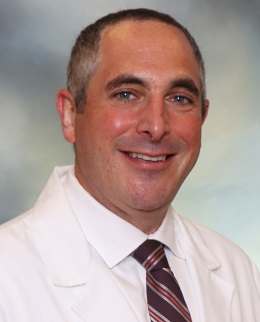
Jonathan H. Sherman, MD
- Surgery-Neurological

Jonathan H. Sherman, MD, FAANS, FCNS, FACS, is a board-certified neurosurgeon specializing in Neurosurgical Oncology. He serves as the Chief of Neurosurgical Oncology at Rutgers Cancer Institute and a Professor of Neurosurgery at Rutgers Robert Wood Johnson Medical School. Dr. Sherman obtained his medical degree from the Medical College of Georgia and completed his neurosurgery residency at the University of Virginia, followed by a fellowship in Neurosurgical Oncology at Memorial Sloan-Kettering Cancer Center.
Dr. Sherman has held prestigious positions, including Director of Neurosurgical Oncology and Stereotactic Radiosurgery at George Washington University, where he was recognized as a Washingtonian Top Doctor for five consecutive years. He then joined West Virginia University as an Associate Professor of Neurosurgery and Director of Neurosurgical Oncology for the Eastern Campus. In his current role at Rutgers, he leads a multidisciplinary team and a robust translational research program, alongside a comprehensive clinical trials program.
Dr. Sherman’s philosophy of care is rooted in his commitment to providing patient-centered, multidisciplinary treatment. He believes that the best outcomes are achieved through a collaborative approach that incorporates the most advanced treatment options available. His primary goal for patients with brain and spine tumors is to ensure they receive the highest quality care, enabling them to return to their lives with the best possible quality of life. He emphasizes the importance of a holistic treatment plan that addresses not only the medical but also the emotional and psychological needs of his patients. He is passionate about utilizing innovative treatment options and advancing neurosurgical techniques through his extensive research, which includes over 130 peer-reviewed manuscripts, a textbook on Cold Plasma Cancer Therapy, and 18 book chapters.
His extensive education and training include a fellowship in Surgical Neuro-oncology at Memorial Sloan-Kettering Cancer Center and comprehensive training at the University of Virginia, where he completed his residency and fellowship in neurosurgery. He has also trained internationally at Auckland City Hospital in New Zealand, adding a global perspective to his expertise.
Dr. Sherman’s clinical areas of interest are diverse and cutting-edge. He is skilled in stereotactic radiosurgery using both Gamma Knife and LINAC-based techniques, fluorescence-guided neurosurgery, and advanced neuromodulation techniques. He is particularly passionate about developing and implementing neuro-oncology clinical trials, striving to push the boundaries of current treatments and discover innovative solutions for complex neurological conditions.
Throughout his career, Dr. Sherman has held numerous prestigious positions, including Director of Surgical Neuro-oncology at George Washington University and West Virginia University’s Rockefeller Neuroscience Institute. His dedication to advancing the field is evident in his significant contributions to translational research, aiming to bridge the gap between laboratory discoveries and clinical applications. His work on cold plasma technology for cancer treatment and numerous other research projects has been recognized and funded by esteemed institutions like the National Science Foundation and the Charlie Teo Foundation.
Dr. Sherman’s passion for neurosurgery extends beyond his clinical practice. He is an avid researcher with a focus on improving clinical outcomes for patients undergoing radiosurgery and other advanced treatments. He has published extensively in leading neurosurgical journals and contributed to numerous peer-reviewed articles and book chapters, sharing his expertise with the broader medical community.
A national and international expert in neuro-oncology, Dr. Sherman is a member of the American Association of Neurological Surgeons (AANS) and the Congress of Neurological Surgeons (CNS), serving on the AANS/CNS Joint Tumor Section Executive Committee for nine years. He is an Academic Editor for PLoS-One and an Associate Editor for Operative Neurosurgery. He is also a Fellow of the AANS, CNS, and the American College of Surgeons.
Dr. Sherman’s work as a clinician-scientist involves translational research aimed at directly impacting and advancing treatments for his patients. He is a pioneer in using healthcare innovations, such as virtual and augmented reality, to improve patient outcomes. Beyond his clinical and research contributions, Dr. Sherman is deeply passionate about mentoring and educating the next generation of neurosurgeons at Rutgers University. His dedication to mentorship and education is evident through his guidance of numerous medical students and residents, as well as his involvement in various educational and research initiatives, including virtual reality enhancements for anatomy education and innovative cancer pilot research studies. This commitment reflects his unwavering dedication to fostering future leaders in neurosurgery and advancing the field through cutting-edge education and research.
Dr. Jonathan H. Sherman is driven by his passion for improving patient care and advancing the field of neurosurgery. His holistic approach, combining cutting-edge research with compassionate patient care, ensures that his patients receive the best possible treatment tailored to their individual needs. His unwavering dedication to his patients, passion for advancing neurosurgical techniques, and commitment to education and research make him a distinguished leader in the field of neurosurgery.
Philosophy of Care:
I am a board-certified neurosurgeon specializing in neuro-oncology. My primary goal for patients with brain and spine tumors is to provide the best outcomes and help them return to their life after treatment with the best quality of life. I use a multi-disciplinary team approach incorporating the most advanced treatment options. I am a healthcare innovator and clinician-scientist working from the bench to the bedside where I perform translational research in an effort to provide a direct impact by advancing treatments for my patients.
Procedures:
Surgical management of brain and spinal tumors; stereotactic radiosurgery (Gamma Knife and LINAC-based); fluorescence-guided neurosurgery; laser-interstitial thermal therapy (LITT); intraoperative awake/cortical mapping; neuro-oncology clinical trial development and implementation
Conditions:
Glioblastoma Astrocytoma Oligodendroglioma Brain metastases Meningioma Radiation necrosis/radiation treatment effect Spinal Metastases Pituitary adenoma
Neurosurgical Oncology, Surgical management of brain and spinal tumors; stereotactic radiosurgery (Gamma Knife and LINAC-based); fluorescence-guided neurosurgery; laser-interstitial thermal therapy (LITT); intraoperative awake/cortical mapping; neuro-oncology clinical trial development and implementation.